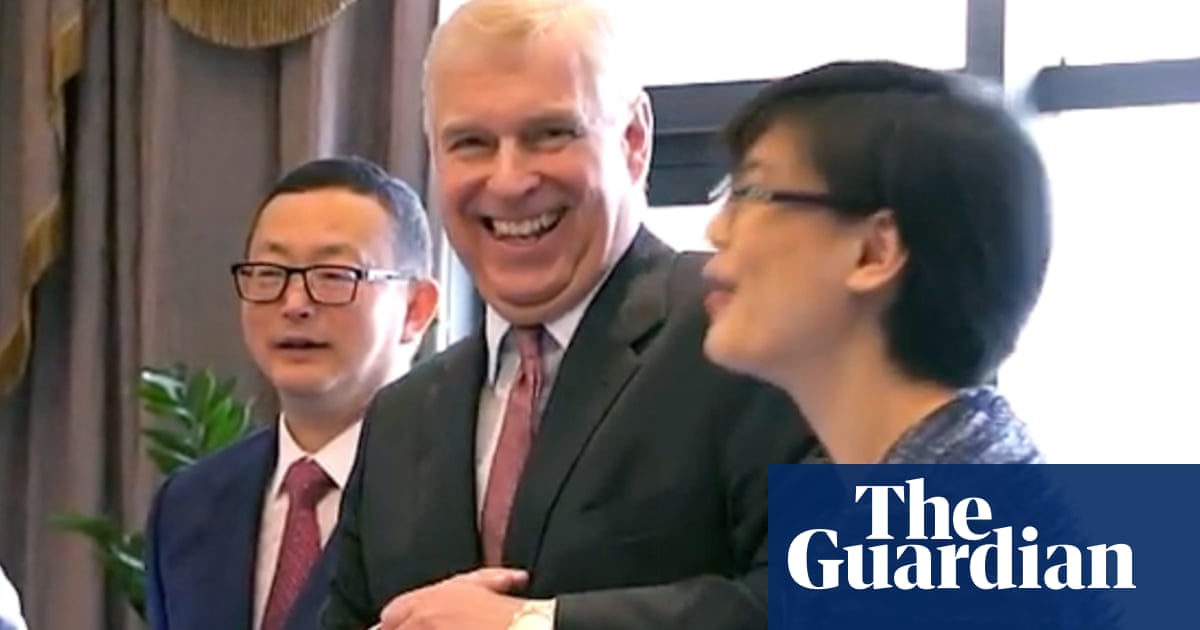We briefly meet Austin, the namesake of this British-Australian sitcom, at the very beginning of the opening episode: he’s walking through his workplace – a warehouse, he’s a forklift driver – bluntly dispensing unsolicited advice to his colleagues (“Best hangover cure: sardines on toast!”). But before we know it, we’ve been torn away from this offbeat sage and thrown into the orbit of a far less wise man. Julian (Ben Miller) is a children’s author in crisis. He has come to Australia with his illustrator wife Ingrid (Sally Phillips) to promote the latest instalment in their wildly successful Big Bear franchise. Before takeoff, Julian retweeted a missive about free speech from a neo-Nazi (he didn’t realise they were a neo-Nazi). Upon arrival, he discovers his career has effectively been destroyed.
Book tour (and self) cancelled, Julian hastily arranges a signing in one of the only shops that will still have him, a Mein Kampf-laden store run by a neo-Nazi (he didn’t realise they were a neo … you get the picture). After the penny finally drops, Julian starts packing up – that’s when Austin arrives, Big Bear back catalogue in tow. He wants his books signed and to deliver some news. “I’m pretty sure that,” he begins, pausing idiosyncratically, “I’m your son.”
Austin is played by Michael Theo, best known for appearing in Love on the Spectrum, the hit Australian reality show about autistic people navigating the world of dating. He is – by a long shot – the best thing about this series. Austin is autistic, and his directness, remorseless logic and atypical intonation are responsible for most of the amusement here. Yes, we are being invited to laugh at him – as is the case with the protagonists of practically every sitcom ever made – but never in a patronising or derisive way. Austin’s behavioural difference mainly serves to highlight how socially odd the neurotypical characters are: Julian, a model of British repression, runs away from Austin after he reveals his identity, while Austin’s grandfather (Roy Billing) ambushes Julian with an eye-wateringly terrible joke at their first meeting.
Unfortunately, the rest of the show is a slog. Miller is generically bumbling as Julian, who attempts to weasel out of his responsibilities towards Austin while also dodging the fact he was clearly seeing his wife and Austin’s mother simultaneously three decades ago. Phillips does her trademark failing-to-suppress-a-wry-smile thing too many times as Ingrid, who sort of, maybe, might want to have an affair to even things out. The cancel culture storyline feels strangely dated too – the fact this was shown on Australian TV nearly a year ago may be why.
Yet it’s the main plotline that is hardest to buy into. With his career on the skids, Julian decides to make a documentary about his relationship with his long-lost autistic son in the hope it will rehabilitate his reputation. To do so, he flies out a celebrated documentarian, the sulky, rude and extortionately expensive Yolanda Cox (Charlotte Nicdao) – although why she’d be interested in this vanity project, I have no idea.
Then Julian and Ingrid return to London with Austin in tow. At this point the documentary element falls by the wayside and other unrealistic storylines – such as the couple’s daughter organising a show of her mother’s scrappy old life drawings, which inexplicably sell for thousands – take over. Austin, meanwhile, is free to indulge his Billie Piper obsession with a guided tour of tenuously related sites, before – of course – bumping into her at a restaurant. Cue a screamingly cringeworthy set of cameos from Piper, who plays herself as a giggly, golden-hearted egomaniac.
Confusingly, despite being created by a team of Brits (including Miller) and featuring many British reference points, Austin doesn’t seem to have been designed for UK viewers. They will immediately see through the show’s trite, twee depiction of Britishness – one that involves excessive levels of politeness, plus Julian’s Oxford don get-up and Ingrid’s eccentric insults (at one point she calls her husband a “colossal clodhumping fink”) – while the UK-Australian culture clash, which mainly consists of long-winded explanations of Britishisms, will feel tiresome too.
This lack of authentic perspective coupled with a heavily artificial plot means Austin never feels remotely plausible. It also fails to cash in on the premise’s tear-jerking potential – the standard conflict-resolution drama is in place, but the emotional climax never hits. Despite the personal charms of its protagonist (his straightforwardness, honesty and ability to be totally himself), Austin sadly has limited appeal.

.png) 5 hours ago
1
5 hours ago
1













































